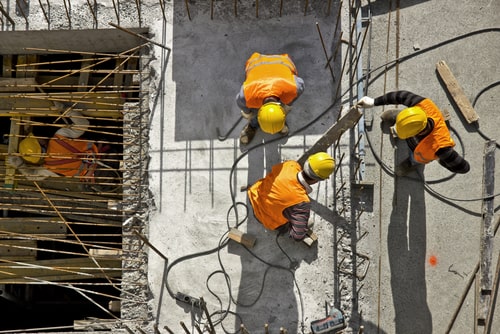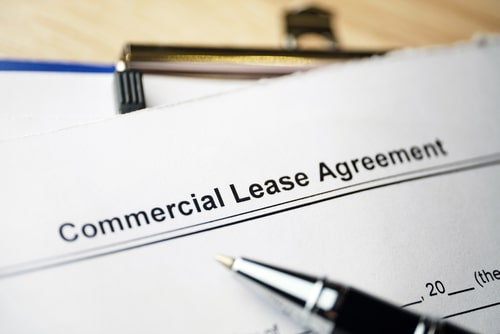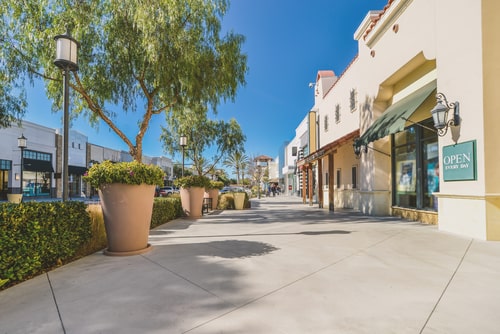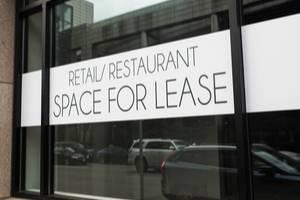Naperville, IL 60563
Recent Blog Posts
How Might Zoning Issues Affect My Renovation Project?
 Businesses and companies generally require space to operate out of. Similar to residential real estate, a business might find an architect and commission a new building or purchase a property that someone already used. Often, considerations including a commercial property’s specific location, already-present utilities and functionalities, and ways it could be adapted are more important to a business owner than whether the building will be brand new. After all, it is possible to renovate and make changes that are better suited to your business’s needs, right? Before making any decisions, it is crucial to speak with a qualified DuPage County, IL real estate attorney to understand how zoning issues might affect your plans for a renovation.
Businesses and companies generally require space to operate out of. Similar to residential real estate, a business might find an architect and commission a new building or purchase a property that someone already used. Often, considerations including a commercial property’s specific location, already-present utilities and functionalities, and ways it could be adapted are more important to a business owner than whether the building will be brand new. After all, it is possible to renovate and make changes that are better suited to your business’s needs, right? Before making any decisions, it is crucial to speak with a qualified DuPage County, IL real estate attorney to understand how zoning issues might affect your plans for a renovation.
Illinois Commercial Real Estate Zoning Issues
Zoning regulations dictate what different types of properties can be used for. The purpose of these regulations is to try to ensure that an area is developed in an orderly manner to the benefit of the people living and working in that area. There are several different types of zones, but the most common include:
4 Common Issues with Commercial Leases in Illinois
 When a business needs to rent space to operate in, it needs to sign a lease for a commercial property rather than a residential property where people can live. Like many types of contracts, a commercial lease agreement can be complicated with various terms and conditions that the tenant needs to be aware of. There may be restrictions on how the property can be used, and if the tenant is unaware and their regular business activity is in violation of the agreement, they could end up kicked out of their property. This article will explore some common pitfalls of commercial leases to help business owners avoid unnecessary mistakes. If you are considering signing a commercial lease, consider consulting with an experienced Naperville, IL commercial lease attorney to ensure you are entering into a feasible agreement.
When a business needs to rent space to operate in, it needs to sign a lease for a commercial property rather than a residential property where people can live. Like many types of contracts, a commercial lease agreement can be complicated with various terms and conditions that the tenant needs to be aware of. There may be restrictions on how the property can be used, and if the tenant is unaware and their regular business activity is in violation of the agreement, they could end up kicked out of their property. This article will explore some common pitfalls of commercial leases to help business owners avoid unnecessary mistakes. If you are considering signing a commercial lease, consider consulting with an experienced Naperville, IL commercial lease attorney to ensure you are entering into a feasible agreement.
Exclusive Use
If you lease a commercial property, you might assume that means no one else can have access to it or use it during your lease period. That is not always the case. Make sure your landlord has signed onto an exclusive use clause if you do not want them or anyone else entering and using the property you have leased while you are leasing it.
ECCRs for Shopping Center Development Projects
 During a real estate development project, various legal concerns will need to be addressed. Property owners and developers will need to ensure that real estate transactions can be completed correctly and that they will be able to use the property as desired. They will also need to understand the various restrictions and agreements that may be put in place that will affect the rights of their tenants, owners of neighboring properties, and other stakeholders.
During a real estate development project, various legal concerns will need to be addressed. Property owners and developers will need to ensure that real estate transactions can be completed correctly and that they will be able to use the property as desired. They will also need to understand the various restrictions and agreements that may be put in place that will affect the rights of their tenants, owners of neighboring properties, and other stakeholders.
There are some unique concerns that may need to be addressed in development projects involving retail stores. The development of a shopping center requires the negotiation and drafting of easements, covenants, conditions, and restrictions (ECCRs). These are agreements that outline the rights and responsibilities of developers in relation to their properties. ECCRs also serve to protect the interests of tenants, investors, lenders, and other stakeholders involved in the development project. To negotiate these agreements successfully, it is important to understand what each document contains, how to best use them during negotiations, and how an attorney can help in the process.
Negotiating a Commercial Real Estate Purchase Agreement in Illinois
 When it comes to commercial real estate, the purchase agreement is one of the most important documents involved in a transaction. This document outlines the terms of the sale and sets forth the obligations of both the buyer and the seller. As a result, it is essential that both parties understand all of the clauses in the agreement before signing on the dotted line.
When it comes to commercial real estate, the purchase agreement is one of the most important documents involved in a transaction. This document outlines the terms of the sale and sets forth the obligations of both the buyer and the seller. As a result, it is essential that both parties understand all of the clauses in the agreement before signing on the dotted line.
However, there are a number of potential pitfalls that can arise during the negotiation process, which a trained attorney in Illinois can help you avoid. By being aware of these possible problems, real estate developers and others who are involved in a transaction can determine the best strategies for avoiding issues and negotiating a successful commercial real estate purchase agreement.
Permits and Approvals in Real Estate Development
 When undertaking a real estate development project, there are a number of permits and approvals that may be required in order to proceed. Developers will need to address zoning laws in a county or municipality, and they may need to take steps to receive approval for certain types of projects. Some common issues that may need to be addressed include rezoning, planned unit development (PUD), and special use permits (SUPs). For legal assistance in these matters, contact a skilled attorney for essential assistance.
When undertaking a real estate development project, there are a number of permits and approvals that may be required in order to proceed. Developers will need to address zoning laws in a county or municipality, and they may need to take steps to receive approval for certain types of projects. Some common issues that may need to be addressed include rezoning, planned unit development (PUD), and special use permits (SUPs). For legal assistance in these matters, contact a skilled attorney for essential assistance.
Rezoning
The first step in many development projects is to seek a change in zoning for the property in question. This is typically necessary when the proposed use for the property falls outside of the allowable uses under the current zoning designation. For example, a developer looking to develop a commercial retail space on a parcel of land currently zoned for residential use would need to have the property rezoned.
Development and Annexation Agreements in Illinois
 Real estate developers in Illinois need to be aware of the potential implications of entering into development and annexation agreements with local municipalities. These agreements can significantly impact the financial viability of a project, as well as the potential risks and rewards. Understanding these agreements' essential terms and conditions is critical for ensuring a successful project. Without a development or annexation agreement, a developer risks having their project halted or modified, leading to significant delays and increased costs. To navigate this process, contact an experienced lawyer for essential guidance.
Real estate developers in Illinois need to be aware of the potential implications of entering into development and annexation agreements with local municipalities. These agreements can significantly impact the financial viability of a project, as well as the potential risks and rewards. Understanding these agreements' essential terms and conditions is critical for ensuring a successful project. Without a development or annexation agreement, a developer risks having their project halted or modified, leading to significant delays and increased costs. To navigate this process, contact an experienced lawyer for essential guidance.
What Is a Development Agreement?
A development agreement is a contract between a developer and a municipality that sets forth the terms and conditions under which the developer may proceed with their project. The agreement will specify the type of development that is allowed, the number of units that can be built, the density of the development, the height of the buildings, the setbacks from property lines, and other zoning regulations. The agreement will also identify any particular conditions that apply to the project, such as environmental restrictions.
Common Pitfalls That Can Affect Commercial Leases
 Most businesses need space where they can operate, requiring them to lease property from a landlord. Commercial lease agreements can be complicated, and tenants will need to be aware of how the terms of a lease will affect their ability to conduct business, the expenses they will be required to pay, and other unexpected issues that may arise. By understanding some of the lease-related pitfalls that commercial tenants commonly encounter, a business owner can avoid these problems and ensure that they will be able to conduct business successfully.
Most businesses need space where they can operate, requiring them to lease property from a landlord. Commercial lease agreements can be complicated, and tenants will need to be aware of how the terms of a lease will affect their ability to conduct business, the expenses they will be required to pay, and other unexpected issues that may arise. By understanding some of the lease-related pitfalls that commercial tenants commonly encounter, a business owner can avoid these problems and ensure that they will be able to conduct business successfully.
Commercial Leasing Issues That May Affect Tenants
Business owners will need to fully understand the terms of a commercial lease. Some issues that should be addressed when negotiating a lease agreement include:
- Common area maintenance (CAM) - A lease may require tenants to contribute toward operating expenses or other costs related to common areas on a property. This may result in additional rent being charged on top of standard rent payments. Tenants should be aware of the types of CAM expenses they may be required to pay, including capital improvements or expenses related to other tenant suites that are not exclusively common areas. In some cases, a lease may place a cap on operating expenses, or it may limit the types of expenses a tenant will be required to pay.
What Forms of Due Diligence Need to Be Performed in the Purchase of Commercial Real Estate?
 Investments in commercial real estate can be very lucrative but can also be very costly if mistakes are made. There are a variety of concerns that will need to be addressed when purchasing commercial property. This article is brief summary of some of the main due diligence items but is not exhaustive. If a buyer will be assuming ownership of property that tenants currently occupy, they will need to be prepared to assume existing leases and understand any other contracts that are in place that will survive the Closing such as service contracts, Declarations of Restrictions and Easements, and other agreements. To ensure that the Due Diligence Process is done correctly and critical items are not missed by the Purchaser, it is crucial to work with an attorney who can help perform due diligence or guide the client in what matters of due diligence are most important during the due diligence period under the subject Purchase Contract in a transaction.
Investments in commercial real estate can be very lucrative but can also be very costly if mistakes are made. There are a variety of concerns that will need to be addressed when purchasing commercial property. This article is brief summary of some of the main due diligence items but is not exhaustive. If a buyer will be assuming ownership of property that tenants currently occupy, they will need to be prepared to assume existing leases and understand any other contracts that are in place that will survive the Closing such as service contracts, Declarations of Restrictions and Easements, and other agreements. To ensure that the Due Diligence Process is done correctly and critical items are not missed by the Purchaser, it is crucial to work with an attorney who can help perform due diligence or guide the client in what matters of due diligence are most important during the due diligence period under the subject Purchase Contract in a transaction.
Commercial Lease Modifications for Tenants Affected by COVID-19
 Since the onset of the COVID-19 pandemic in 2020, businesses in Illinois and throughout the United States have encountered financial difficulties. As the country is beginning to return to normalcy, some businesses have been able to resume their regular activities and continue operating successfully. However, many businesses are still struggling as they determine how to respond to the loss of revenue that occurred due to the pandemic. These issues have affected many commercial leases, and both landlords and tenants may need to determine how to address situations where a business has been unable to pay rent on a short-term or long-term basis.
Since the onset of the COVID-19 pandemic in 2020, businesses in Illinois and throughout the United States have encountered financial difficulties. As the country is beginning to return to normalcy, some businesses have been able to resume their regular activities and continue operating successfully. However, many businesses are still struggling as they determine how to respond to the loss of revenue that occurred due to the pandemic. These issues have affected many commercial leases, and both landlords and tenants may need to determine how to address situations where a business has been unable to pay rent on a short-term or long-term basis.
Negotiating Lease Modifications for Commercial Landlords and Tenants
As commercial tenants have encountered financial struggles, this has put many landlords in a difficult position. While some landlords many have pursued lease enforcement actions, others may have been hesitant to do so due to the difficulty of finding new tenants in the current marketplace. Rather than pursue evictions or take steps to terminate a lease, it may be beneficial for both parties to negotiate lease modifications that will allow a tenant to continue occupying a space as they attempt to address their ongoing financial issues.
How to Successfully Navigate Through the Zoning and Development Process For Existing or New Commercial Real Estate Development Projects
 Real estate developers and investors will typically have multiple opportunities to pursue projects involving commercial real estate which may include retail, industrial, office and various mixed-use developments. A development project will typically involve the construction of on-site and off-site improvements, the construction of new buildings or structures, and a variety of other changes that will allow a property owner to generate revenue by leasing space to commercial tenants. However, when planning to purchase commercial property or begin a development project, owners and investors will need to understand how zoning laws will apply to them and their options for addressing any issues that may affect their ability to carry out their plans. Any mistakes with this process can be very costly and fatal to a project. The zoning and land use attorneys at Lindell & Tessitore P.C. have extensive experience in helping buyers and owners navigate through the zoning and development process, including, but not limited to, due diligence matters and in seeking to obtain all zoning and development entitlements needed for the zoning or development project.
Real estate developers and investors will typically have multiple opportunities to pursue projects involving commercial real estate which may include retail, industrial, office and various mixed-use developments. A development project will typically involve the construction of on-site and off-site improvements, the construction of new buildings or structures, and a variety of other changes that will allow a property owner to generate revenue by leasing space to commercial tenants. However, when planning to purchase commercial property or begin a development project, owners and investors will need to understand how zoning laws will apply to them and their options for addressing any issues that may affect their ability to carry out their plans. Any mistakes with this process can be very costly and fatal to a project. The zoning and land use attorneys at Lindell & Tessitore P.C. have extensive experience in helping buyers and owners navigate through the zoning and development process, including, but not limited to, due diligence matters and in seeking to obtain all zoning and development entitlements needed for the zoning or development project.




